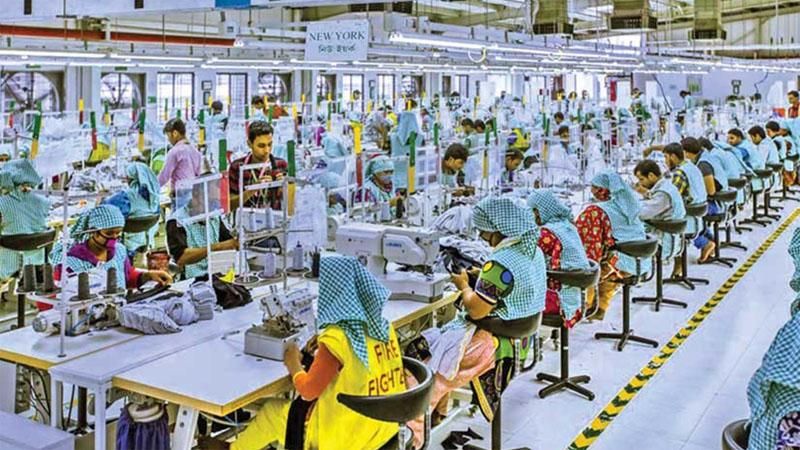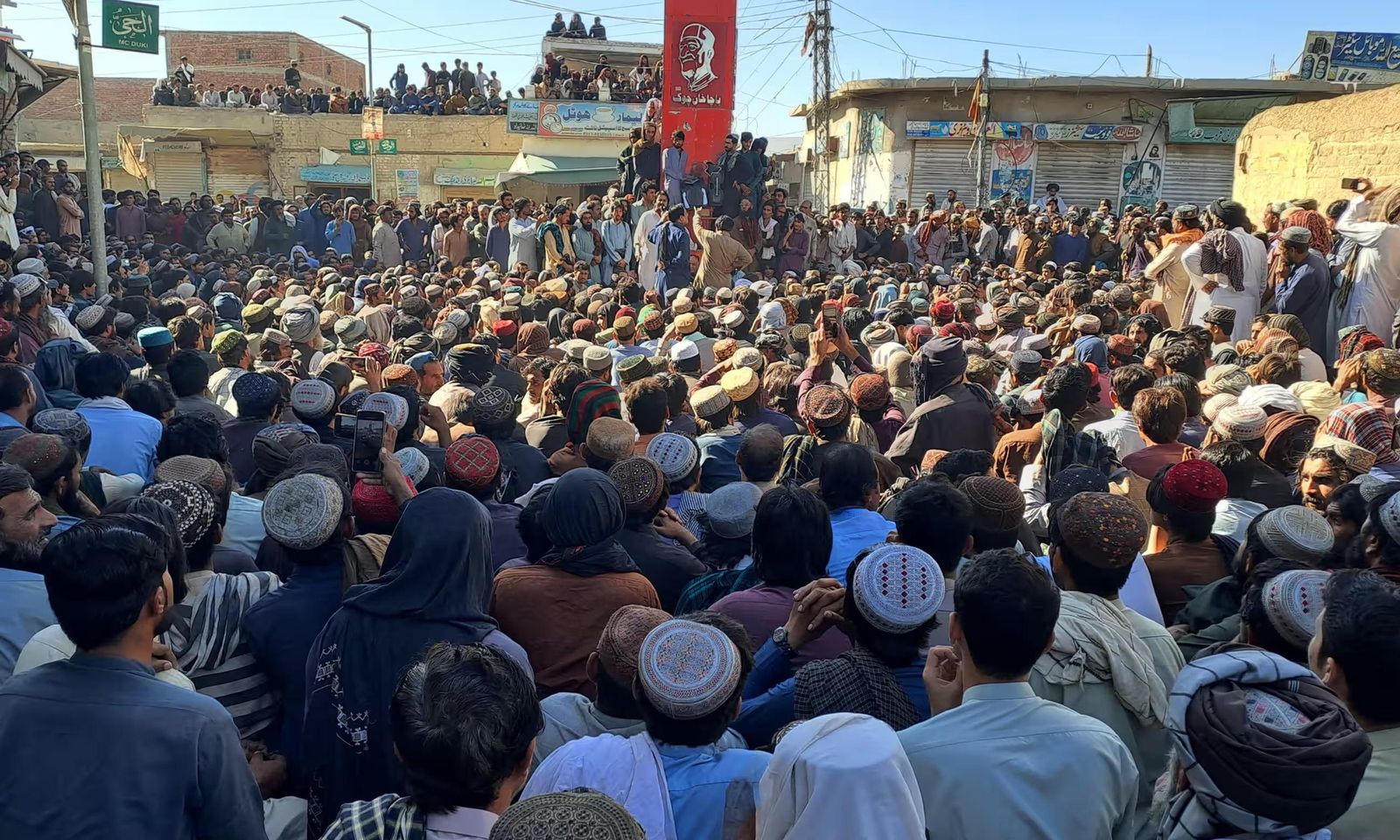Having a sound textile industry, India and Pakistan --major competitors of Bangladesh in the readymade garment sector in the global markets— have started pursuing a comprehensive policy based on the socio-economic conditions to remain competitive in the international markets, according to the international newspapers.
Against this backdrop, Bangladesh should pursue a comprehensive policy to nourish, nurture and promote the textile and clothing sector—one of the major backbone of the national economy—to remain sustainable in the global textile market, said top leading textile and clothing entrepreneurs while talking to The Dazzling Dawn.
India and Pakistan-both competitors to Bangladesh in the garment sector of Bangladesh and have a strong textile sector –are taking special care of the both textile and clothing sectors to remain competitive in the international markets, according to the international newspapers.
Meanwhile, Bangladesh readymade garment (RMG) sector which is source of over 80 percent of export earnings have suffered hiccups after dictator Prime Minister Sheikh Hasina quit the power and left the country on August 5, 2024 to enjoy hospitality of the Modi government.
The rise in cost of living in Bangladesh has generated irritation, grievance and impatience among the workers in the last several years that entrepreneurs, policy makers and workers leaders have properly looked at.
Though the second generation has entered the garment sector in the last 10-15 years in Bangladesh, the country has witnessed in the naked eye the lack of development of the corporate sector and proper management resulting in the vandalism in a number of garment units in the last two months.
The leaders of the Bangladesh Garment Manufacturers and Exporters Association (BGMEA) have not developed a proper and sustainable Combined Bargaining Association (CBA) that can bridge among owners and workers in the sector, sources in the industry said.
As Bangladesh has entered a new era under the leadership of Nobel Laureate Professor Mohammed Yunus as the head of the interim government and the relations with the western counties that suffered heavily during Sheikh Hasina’s regime is set to improve in the coming days, the country will have to look at the sustainable and healthy relation between workers and owners, said a top policy maker of the country.
Former BGME president and incumbent Chairman of Envoy Textiles Kutubuddin Ahmed also laid emphasis on developing proper CBA in the greater interest of the industry and to remain competitive in the international market.
Kutubuddin Ahmed, also a former president of Metropolitan Chamber of Commerce and Industry (MCCI) also acknowledged that the garment suffered labour unrest against the backdrop of proper CBA in the country.
In the new environment under Professor Mohammed Yunus who has special relation with the western countries, that are also 80 per cent market share of Bangladesh’s RMG sector, the country should have to ensure sound labour standard and sustainable and healthy environment in the industry, said an economist of the Dhaka University.
Referring to the RMG unrest, Tapan Chowdhury, CEO of Square Group and former adviser to a caretaker government, said, "Due to the unstable conditions in our country's apparel sector, many buyers are shifting to Sri Lanka. They previously sourced garments from there, but because of the instability in Sri Lanka, they turned to us. Now, with our current instability, they are returning there."
Expressing hopes for stability, he said that while the situation still remains volatile, gradual changes are occurring as the government has taken some measures.
"External actors often contribute to the destabilisation of this sector and it is also politicised domestically. We must address this for the country's sake, as around 45 lakh workers, mostly women, are directly employed," the businessman said.
Regarding the revenue authority, Tapan said, "The current NBR chairman has a very positive approach and is engaging with stakeholders regularly. The same goes for the Ministry of Commerce. Hence, we are optimistic about the future."
In response to a journalist's question, the businessman said, "I do not think that there is a need for business representatives on the interim government's advisory council. Traders tend to lobby for their own interests. Currently, no council members are businessmen, which allows for equitable benefits across all sectors."
Regarding major business groups like S Alam and Beximco that have engaged in unethical practices, the Square CEO said, "The government is taking action against those involved in such practices, based on evidence."
"There is a societal tendency to expect overnight success in business. We need to move past that mentality and conduct business ethically to achieve our goals. Many successful businessmen who did not follow ethical practices have ultimately faced failure," he added.
However, Tapan Chowdhury has said despite the instability in the garment sector, businessmen are feeling much more at ease under the interim government compared to the previous government's over 15-year period.
"We feel quite comfortable now. A significant change has taken place and we are witnessing major transformations in government offices. Previously, the environment was so dire that no one could speak out," he said addressing the "Tapan Chowdhury Conversation with ERF Members" at the Economic Reporters Forum (ERF).
The businessman also said that the country should be governed by political parties and urged the interim government to provide an election roadmap as soon as possible.
ERF President Refayet Ullah Mirdha presided over the event while the organisation's General Secretary Abul Kashem moderated the event, held at the ERF auditorium.
Meanwhile, India’s textiles sector is set for significant expansion, with an 11% year-on-year growth in Ready-Made Garments (RMG) of all textiles exports, as per India’s trade data of August 2024.
The textiles sector in the country is expected to grow to $350 billion by 2030, driven by India’s inherent strengths and a strong policy framework that encourages investment and exports.
With end-to-end value chain capability, a strong raw material base, a large export footprint and a vibrant and rapidly expanding domestic market, India is a traditional leader in the textiles sector. The encouraging reports of a number of investment decisions in the pipeline are healthy portents for the industry.
A number of schemes and policy initiatives as part of the government’s roadmap aim to leverage and catalyse these inherent strengths to help the textile sector achieve the USD 350 billion goal by 2030.
While an investment of over Rs 90,000 crores is expected to flow through PM Mega Integrated Textile Region and Apparel (PM MITRA) Park and Production Linked Incentive (PLI) Scheme in the next 3-5 years, schemes like the National Technical Textiles Mission are expected to help India acquire leadership position in emerging sectors such as technical textiles.
Last month, Prime Minister Narendra Modi laid the foundation stone of the PM MITRA Park at Amravati in Maharashtra. This is one of the seven parks sanctioned across the country under the flagship PM MITRA Park scheme.
With world class infrastructure including plug and play facilities, PM MITRA parks shall be a major step in realising the vision of making India a global hub for textile manufacturing investment and exports.
Each PM MITRA Park, when complete, is expected to attract an investment of Rs 10,000 crores and generate nearly 1 lakh direct employment and 2 lakh indirect employment.
The PLI Scheme, with a total projected investment of over Rs 28,000 crore, projected turnover of over Rs 2,00,000 crore and proposed employment generation of nearly 2.5 lakhs is intended to promote production of MMF apparel and fabrics and technical textiles products in the country to enable textile industry to achieve size and scale.
Meanwhile, Pakistan Senate Chairman Syed Yusuf Raza Gilani has said that the government is taking significant steps to improve Pakistan’s textile industry, which contributes 60% to the national economy.
Speaking as the chief guest at the 7th International Conference on Textiles, titled “Inspiring Change: Challenges and Strides are the Wings of Success,” Gilani stressed the critical role the sector plays in economic growth and employment.
He pointed out that millions of families depend on the textile industry for their livelihood, underscoring its importance in providing jobs to thousands of workers.
Gilani also highlighted Pakistan’s potential to produce high-quality cotton, the backbone of the textile sector, and called for enhanced research and development to improve cotton quality while reducing reliance on imported raw materials.
The Chairman urged the production of innovative and high-quality textile products, noting that decreasing reliance on government subsidies would help make the industry more self-sufficient.
He also emphasized the need for the sector to stay competitive globally and encouraged strengthening Research and Development (R&D) efforts from cotton cultivation to finished textile products.
Gilani stressed the need to advance both traditional and modern segments of the textile industry, stating that the Senate plays a key role in creating legislation that supports sustainable industrial growth.
He further assured that the government is committed to providing cutting-edge technology to the industry, essential for its modernization.
Acknowledging the talented students at the event, Gilani praised the role of educational institutions in developing new techniques and designs for the textile industry.
He expressed optimism about the future of Pakistan’s textile sector.
U.S. Consul General in Lahore, Kristin K. Hawkins, also addressed the conference, highlighting the strong business ties between Pakistan and the United States.
Earlier, Gilani presented awards to outstanding participants in recognition of their contributions to the textile industry.








.svg)


